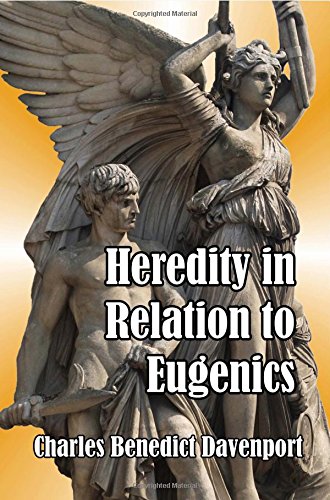|
|
Heredity in Relation to Eugenics by Charles Benedict Davenport Completely reset and reformatted, this is a masterful, thoroughly researched and documented survey of the effects of inheritance upon positive and negative human traits—including physical, mental, and racial attributes—this book was acknowledged as the best work of its kind and used for decades as the standard US college textbook on the topic. Written by Professor Charles Davenport, a Harvard-trained Ph.D. graduate who also served as director of Cold Spring Harbor Laboratory and founder of the US’s Eugenics Record Office, Heredity in Relation to Eugenics was the culmination of decades of research carried out to investigate the effects that biological descent had in improving—or impoverishing—human stock. Prepared at a time when Western academics could still write freely about the supremacy of nature over nurture, and of the important effects of race and racial mixing, Professor Davenport’s book provides a wealth of detail—including meticulously researched family trees—which prove conclusively that every human attribute, both positive and negative, can be traced back to an individual’s biological inheritance—and this includes psychology, intelligence, character, and behavior. It is the ultimate scientific refutation of the “blank slate” theory promoted by leftist sociology. This book shows that inheritance determines all individual physical and psychological characteristics, including musical, artistic, literary, mechanical, mathematical, and memory retention abilities. Furthermore, Professor Davenport’s research proved disorders such as epilepsy, insanity, narcotism, rheumatism, speech defects, eye and ear defects, skin diseases, cancers and tumors; diseases of the muscular system, the blood, the thyroid gland, the vascular system, and much more, are all inherited. Studies even show, Professor Davenport illustrates, that characteristics such as pauperism, criminality, and nervous diseases also run in families. The case studies then move on to discuss the importance of race, immigration, and its effect upon society, before concluding with a study on the best way to eliminate undesirable traits, the sociological aspect of eugenics, “the salvation of the race through heredity,” and a discussion of “freedom of the will and responsibility” in ensuring that society’s interests are best served. Lavishly illustrated with over 180 charts and diagrams.
Indexed. 272 p-sc
|

